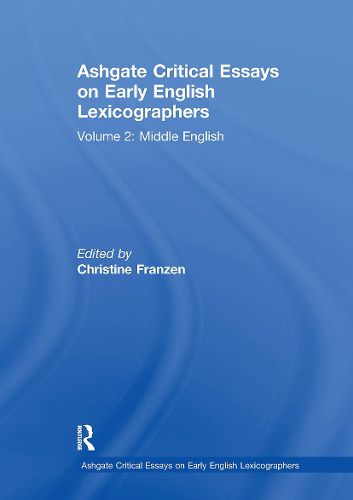Readings Newsletter
Become a Readings Member to make your shopping experience even easier.
Sign in or sign up for free!
You’re not far away from qualifying for FREE standard shipping within Australia
You’ve qualified for FREE standard shipping within Australia
The cart is loading…






The teaching of Latin remained important after the Conquest but Anglo-Norman now became a language of instruction and, from the thirteenth century onwards, a language to be learned. During this period English lexicographers were more numerous, more identifiable and their works more varied, for example: the tremulous hand of Worcester created an Old English-Latin glossary, and Walter de Bibbesworth wrote a popular contextualized verse vocabulary of Anglo-Norman country life and activities. The works and techniques of Latin scholars such as Adam of Petit Point, Alexander Nequam, and John of Garland were influential throughout the period. In addition, grammarians' and schoolmasters' books preserve material which in some cases seems to have been written by them. The material discussed ranges from a twelfth-century glossary written at a minor monastic house to four large alphabetical fifteenth-century dictionaries, some of which were widely available. Some material seems to connect with the much earlier Old English glossaries in ways not yet fully understood.
$9.00 standard shipping within Australia
FREE standard shipping within Australia for orders over $100.00
Express & International shipping calculated at checkout
The teaching of Latin remained important after the Conquest but Anglo-Norman now became a language of instruction and, from the thirteenth century onwards, a language to be learned. During this period English lexicographers were more numerous, more identifiable and their works more varied, for example: the tremulous hand of Worcester created an Old English-Latin glossary, and Walter de Bibbesworth wrote a popular contextualized verse vocabulary of Anglo-Norman country life and activities. The works and techniques of Latin scholars such as Adam of Petit Point, Alexander Nequam, and John of Garland were influential throughout the period. In addition, grammarians' and schoolmasters' books preserve material which in some cases seems to have been written by them. The material discussed ranges from a twelfth-century glossary written at a minor monastic house to four large alphabetical fifteenth-century dictionaries, some of which were widely available. Some material seems to connect with the much earlier Old English glossaries in ways not yet fully understood.